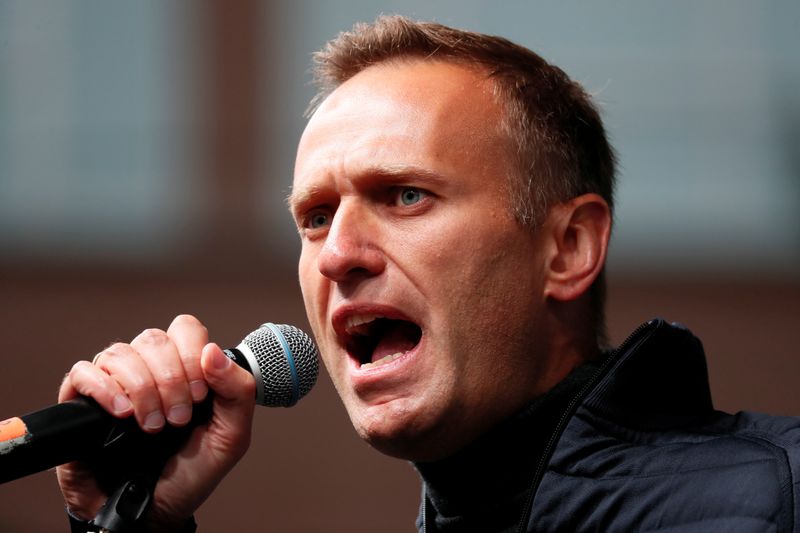MOSCOW (Reuters) - The Kremlin said on Friday that it wanted dialogue with Germany over the case of opposition politician Alexei Navalny and that Russian doctors who treated him initially were much more transparent than the German doctors treating him now.
Germany, where Navalny is in hospital, has said he was poisoned with a Soviet-style Novichok nerve agent and wants the perpetrators held to account. Russia has until now not opened a criminal investigation and said there is no evidence yet of a crime.
Kremlin spokesman Dmitry Peskov said Moscow wanted to find out from Germany what exact substance caused Navalny to fall ill in Siberia last month.
"According to the version of our doctors it wasn't a poisoning," Peskov said. "The German specialists managed to establish some kind of poisonous substance. We're counting on a dialogue with our German colleagues."
He added: "Investigative actions are being carried out by our specialists, and if there is confirmation of the presence of poisonous substances in the biological material of the patient (Navalny), then of course legal consequences will follow. We ask everyone to rely on the facts."
Navalny is the most popular and prominent opponent of President Vladimir Putin, and the German announcement this week that he was poisoned by a nerve agent has raised the possibility of further Western sanctions against Moscow.
Separately, a Russian court said on Friday it had rejected a complaint filed by allies of Navalny accusing a top law enforcement body of inaction over what they said was his attempted murder.
One of Navalny's allies accused the Investigative Committee, which handles probes into major crimes, of inaction following a statement they filed to it on Aug. 20 demanding a criminal investigation be opened into Navalny's attempted murder.
The court said the Investigative Committee had passed on the statement by Navalny's supporters to one of its regional branches in Siberia and asked for it to be reviewed.
Kira Yarmysh, Navalny's spokeswoman, said the court had said their statement had been treated as a "citizen's appeal", a legal nuance she said meant it could take up to 30 days for it be looked at.

"Anything so they don't have to start an investigation," she wrote on Twitter.